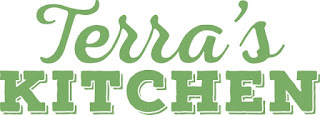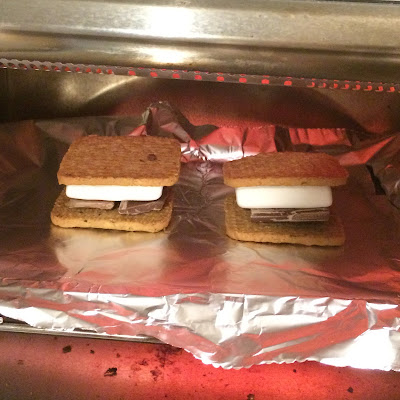We are all trying to do the best we can while living with our individual diagnosis and trying to navigate the gluten-free waters. Yet I see hurtful and hateful comments, posts, tweets, etc. on a daily basis from people in the celiac community. It is so awful that I am beginning to think that being mean and rude is a symptom of some people diagnosed with Celiac. There is an old saying "If you have nothing nice to say, don't say it." I wish the mean celiacs, disgruntled business owners, and popular bloggers would just keep their mouths shut rather than go out of their way to say hurtful things to one another.
Being bullied for having celiac is bad enough. Being bullied by someone with celiac is even worse! This is a tough enough diagnosis for many of us, but you spewing your hate publicly via social media and in comments and privately via emails is not helpful at all. I have actually stopped reading about 95% of the blogs I subscribe too because I find things to be just too negative. Comments are even worse sometimes and just make me sad.
2. Stop trying to push your "treatment" on others.
As I have said many times before, my celiac is not your celiac. While I am happy that you have found solutions to heal your pain, it may not be the best treatment for me. I tried supplements for a while, but they didn't help me me. I would never purposely eat gluten after taking a "miracle pill" yet I have been pitched at least five pills in the past year. I also don't want to know what charcoal, wheatgrass (yes, really), pH balancing concoction you take after you get glutened. I am probably too busy puking to drink it anyway. My celiac is my celiac and my way of dealing with being glutened is up to me, not you.
3. Stop trying to get me to eat foods I am not comfortable eating.
I cannot physically tolerate gluten-free oats. (Read more here.)
I do not feel comfortable drinking gluten-removed beer that is derived from barley.
I am anaphylactic to shellfish.
I know the difference between Celiac as an autoimmune disease, an anaphylactic allergic reaction, an intolerance, and a personal preference.
My choice to not eat certain foods is MY CHOICE. Yet I once received hate mail from a store owner in NYC that said I am biased and only show one side of the food story. I also had a demo person at a GF expo stop talking to me and turn her back on me when I told her I did not consume oats and therefore could not eat their cupcakes.
Does a person with a deadly peanut allergy need to post about the pros of eating peanuts on their site?
Does someone who is Kosher need to post a recipe for a bacon cheeseburger?
Does a vegan need to post about their new pork recipe?
NO!!!
Then why do I have people tell me I should eat Cheerios because they are fine when they eat them. This is my blog and I will post what I want when I want and how I want. If you eat oats or sell gluten-free beer in your store, good for you. I am may be a potential customer, but I am not wrong because I choose not to eat those products. You are wrong for trying to force me to buy and consume something that is not good for my body.
4. Stop plagiarism. PERIOD.
Many times in my blogging career, I have found posts online that are my words, my thoughts, and even my photos that were claimed as their own. Gluten-free recipes are stolen all the time and claimed as "originals." Almost weekly, I hear about another blogger getting ripped off. I have been ripped off by both bloggers and even GF companies using my original work as their own. I work hard on my content. When another blogger takes our content without asking, it is very upsetting not to mention illegal. Unfortunately, this isn't unique to the celiac blogger community but to anyone that publishes content on the internet. Just stop doing it. It's not cool and you will get caught.
Oh, and this goes for using a trademarked name as well. Yes, someone is trying to pass themselves off as Gluten-Free Globetrotter® (my other website) on social media. My brand is legally trademarked with the USPTO. Legal action is pending... so disappointing.
5. Stop being a careless celiac and then bragging about it on your website.
When you publish to the internet and make your post public, anyone can read this post, tweet, or see your photo. This means a person diagnosed with celiac today might be reading your post or someone that was diagnosed more than 35 years ago, like me, is reading your post.
When a blogger or social media influencer writes: "I just wanted to taste that [gluten-filled] food and I will deal with consequences later," you are diminishing the fact that gluten can gravely damage someone with celiac disease. Not to mention, you are knowingly triggering an autoimmune response in your body. A newbie might not yet have enough information to understand this yet which is why they are reading your blog in the first place.
While I know you might think I am contradicting my own previous comments here in #5, I do think there is a responsibility of being a public voice in the celiac disease community. The person knowingly eating gluten and blogging about it makes it seem "allowed." The Instagrammer who continuously posts food that has a high-risk of cross contamination (and tags it so) yet also says they are gluten-free could put someone in seriously jeopardy health-wise. The person who has a celiac twitter handle that says "I just ate at XYZ and I know I will pay for it later but it tasted so damn good" is being careless. I just want you to think about who might see your comment before you post to the public. And yes, I am going to heed my own warnings on this one too.
This may be a bit negative for my audience, but it is something that has been brewing in my mind for a very long time. I have been living with celiac disease for more than 35 years and have been blogging for close to ten years. This community has changed dramatically over time both for the good and the bad. I would like us all to help make things BETTER not WORSE. I would love to read your comments below. Feel free to post your name or post anonymously. It's up to you!
Labels: celiac, Gluten-Free Fun, my story



























